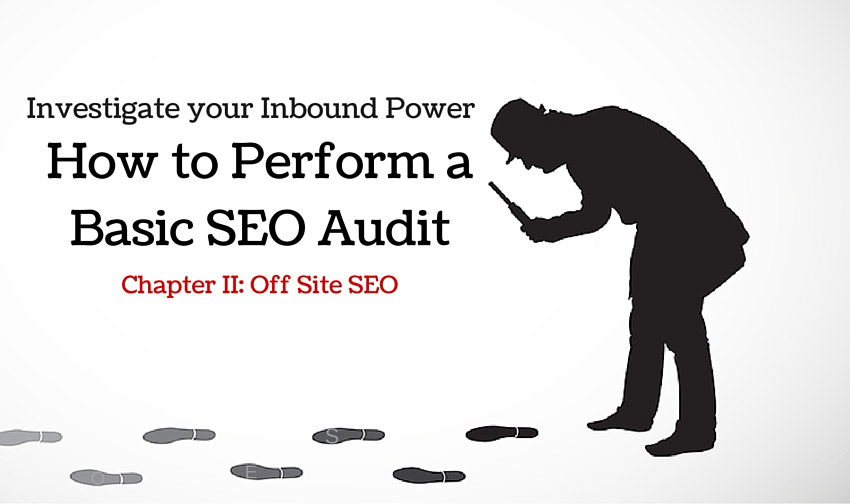Conduct Your Own SEO Audit: Part 2

Conduct A Basic SEO Audit: Off Site SEO
In our conduct your own SEO audit part 1 you learnt about on site SEO. In part two we'll talk about Off site SEO. SEO audits are a good way to start your optimisation plan. Once you've looked into the things that your site's doing, it's time to look at the off-site factors. Things that happen off your site have a huge influence on your site's rankings, and you need to understand them before you proceed.
Here are some of the off-site factors to review before sketching out your SEO plan.
Off-site auditing:
Accessing the factors that point to your site isn't quite as easy as accessing what's on your site. It takes a little bit of ferreting around to get the information you need.
*How Google is indexing you. You can't have any idea of where you stand with the search engines unless you know what they're seeing. Handily, it's fairly easy to get a list of the pages they've indexed. For Google, type in site:www.whateveryoursiteis.com and you'll be able to see everything Google has indexed. It's also important to look at Google Search Console to see if there are any crawl errors.
*Where you stand with Google. Your actual pages are just one element. You need to know where you're showing up for different searches. The most important is your brand, so that should be the place to start. (Hint: if you're not even showing up for a brand search, you're in trouble. It might be a good idea to start investigating whether your site has been penalised.)
*Links. These are some of your site's greatest assets – or they should be. If your existing link list isn't looking too good, don't worry. That's what your SEO plan is for. It helps to have an idea of where you stand in terms of links, though, and to get an idea of whether there are bad links pointing to your site that could be doing you damage. You can access a list of links pointing to your site using any of a number of tools on the net including Moz's Open Site Explorer.
*Social media. Another major area of influence is social media. Social media sites provide the search engines with an idea of how popular your site and brand is, without having to consult your site directly. Analysing social media factors is a little more difficult than obtaining a list of your indexed pages, but just as worthwhile. Check to see:
-what level of Likes you're getting on Facebook, how many people connect with your company
-how many followers you have on Twitter and how often you get retweeted
-how many connections you've made through LinkedIn and how often your company profile is viewed (don't forget to include senior staff profiles in this check)
And so on.
If you find you're underperforming in any of these off-site areas, don't worry. You've got a strong indication of things you can do to improve your site's situation. Take the results of your audit and plan to fix those areas that are failing.
Further reading
This is a very basic list of things you should audit before starting your SEO. If you're interested in more thorough auditing (and you should be – auditing should be an ongoing process) there are some excellent resources around the web:
*Moz's https://moz.com/blog/how-to-perform-the-worlds-greatest-seo-audit

